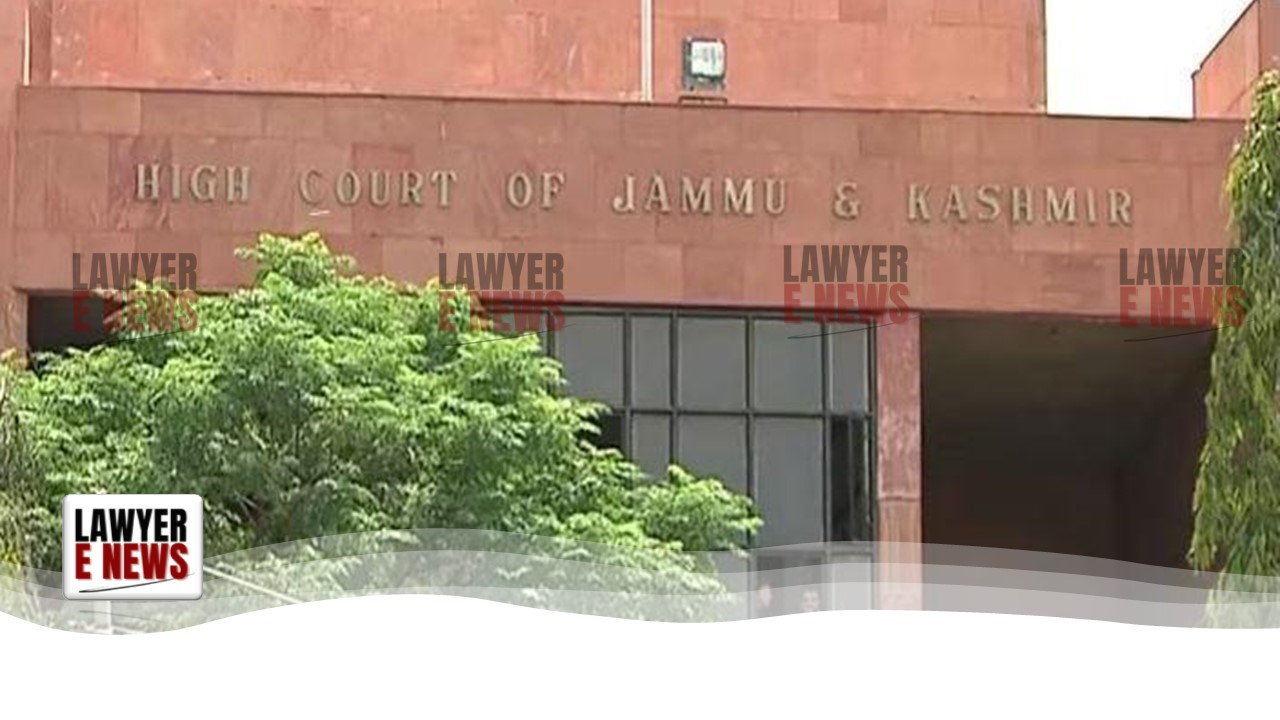-
by Admin
15 February 2026 5:35 AM



High Court of Jammu & Kashmir and Ladakh, in the case of Welfare Committee Naugran Prithipur Sehora and Kotli Mian Fateh v. Union of India and Others (WP(C)PIL No.10/2023), issued a significant ruling addressing the lack of safe passage for villagers impacted by the construction of the Jammu Ring Road. The court directed the respondents, including the National Highway Authority of India (NHAI), to construct an overhead bridge or underpass to alleviate the severe inconvenience faced by villagers in crossing the highway, setting a key precedent for public infrastructure cases.
The case arose after the Welfare Committee, representing the residents of Villages Naugran, Prithipur, Sehora, and Kotli Mian Fateh, filed a Public Interest Litigation (PIL) seeking construction of service lanes and crossing lanes beneath the Ring Road. The villagers argued that the road’s construction had created significant difficulties, including blocking access to homes, agricultural lands, and essential public spaces like the cremation ground. The villagers also raised concerns about water stagnation during the rainy season and the lack of irrigation channels due to the road's construction.
The primary legal issue was whether the failure to provide adequate infrastructure (such as underpasses or bridges) beneath the Ring Road violated the rights of the villagers to safe access and whether the respondents were obligated to restore irrigation channels obstructed by the road construction.
During the proceedings, the petitioner’s counsel argued that the respondents had neglected their duty, leaving villagers exposed to dangerous situations while crossing the road. The petitioners emphasized that urgent steps were needed to avoid a "death trap," especially given the high speed of vehicles on the Ring Road.
The respondents, represented by the NHAI, contended that they had already provided underpasses and service lanes at other locations and that the work was ongoing in some areas. However, the Court appointed a commissioner to assess the situation on the ground.
The Court, relying on the Commissioner's report, noted that "villagers in one voice stated acute hardships in crossing the Highway where speedy vehicles pass frequently", and expressed concerns about the lack of basic provisions for safe crossing. The report confirmed that water channels were blocked, and access to vital services had been disrupted.
The Court observed that while the NHAI had taken steps in some areas, the lack of attention to these particular villages was causing severe inconvenience. Notably, the report highlighted the absence of an overhead bridge or underpass, which had been provided at other locations like Sehora and Kotli Mian Fateh.
Based on these findings, the Court directed the NHAI to take immediate steps to construct an overhead bridge or underpass to facilitate safe passage. The Court further ordered the restoration of irrigation channels and measures to prevent water stagnation during the rainy season.
In this landmark decision, the High Court has emphasized the necessity of balancing public infrastructure projects with the safety and convenience of local populations. By mandating the construction of safe crossings and restoration of vital irrigation channels, the Court has set an important precedent in safeguarding the rights of affected communities.
Date of Decision: 25th September 2024
Welfare Committee Naugran Prithipur Sehora and Kotli Mian Fateh v. Union of India and Others
